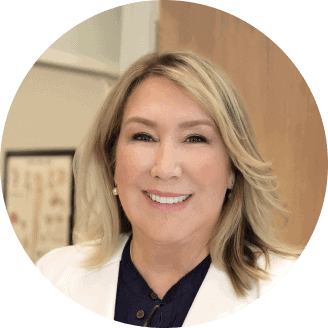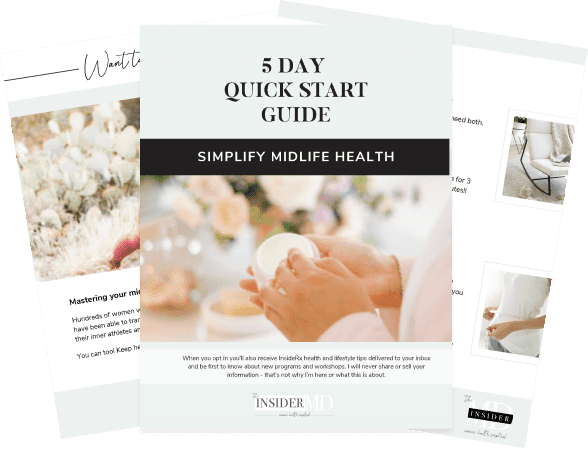
The Biggest Challenges for Women at Midlife – Spoiler Alert: It’s Not Menopause
Midlife is considered a period of transition between 40 and 65 years of age. During midlife, women typically experience multiple stressful challenges such as health concerns, caring for aging parents, deaths, work-related issues, children leaving the nest, financial worries….and menopause. In this blog, we’ll discuss experiences that women at midlife identify as the most challenging.
The Study
The Seattle Midlife Women’s Health Study, a longitudinal survey study spanning 23 years, asked women to describe which life experiences they perceived to be the most stressful looking back over a course of 15 years. A perceived stress scale is a psychological tool used to measure the degree to which one’s life situations are appraised as stressful. It is designed to evaluate how unpredictable, uncontrollable, and overloaded respondents find their lives.
Who Participated?
508 women between 1990 and 1992 entered the study, when most were either premenopausal or in early perimenopause. The subjects were diverse in age, years of education, and race/ethnicity. Eligible women described themselves as African American, Asian and Pacific Islander, or White, and the group included women who had never been married or partnered, those who were married or partnered, divorced or separated, and widowed. A majority (67%) of the women were parents.
Between late 1996 to 2005, the participants completed an initial in-person interview, kept a health diary, and provided urine samples. They all filled out a yearly Health Questionnaire and kept a menstrual calendar.
What They Said
Participants in the study described experiencing a diverse array of stressful events including health problems, family problems, work-related issues, deaths, unmet life goals, financial concerns, and deaths of loved ones. Women reported the health problems they were experiencing, as well as the problems their parents experienced.
Family challenges included adolescent children, domestic violence, divorce or separation from a spouse, and breakups. Work problems included difficulty finding employment, workplace conflicts, and downsizing. These women also reported frustration with achieving goals including the inability to complete an academic program, lack of personal time while working, and financial stressors like not being able to pay college tuition for a child or afford essentials.
Greater perceived stress levels were significantly related to employment, history of sexual abuse, depressed mood, negative sentiments toward aging, and poorer health. Symptoms such as hot flashes, sleep disruption, difficulty concentrating, and depressed mood were associated with greater perceived stress, but the menopausal transition itself was not.
Factors associated with significantly lower perceived stress levels included; improvement in caregiver burdens, social support, and income adequacy.
The Biggest Midlife Stressor Was…
The biggest challenge for women at midlife that was identified in the study was having to deal with multiple life stressors, many of them occurring at or around the same time, and for many within a context of limited resources.
Five themes emerged:
1) Changing family relationships.
his refers to the changing relationships that women had with different family members: husband/partner, children, aging parents, siblings, and in-laws. It also included children leaving home, parenting teenagers, caregiving, divorce, separation, and/or untimely death of a partner, parent or sibling and, in some cases, starting a new relationship.
2) Balancing work and personal life.
The majority of women, feeling overworked and having to balance multiple roles was difficult. A stressful job/career, unemployment, balancing multiple roles, job change/ career change, job loss/ unemployment, finding a job with health benefits, and facing retirement necessitated re-balancing work and personal life.
3) Rediscovering self.
Though many women described newfound comfort with who they were and self-acceptance, finding meaning of their lives presented a challenge for many women. Some women found it challenging to accept not achieving their life goals, realizing that the number of active years is limited, while others focused on the difficulties of seeking new relationships. To re-discover themselves, some women returned to graduate school or decided to finish a university degree they once started.
4) Securing enough resources.
Dealing with financial challenges such as college tuition, a partner’s unemployment, and lack of health insurance, were identified as all-encompassing by many women.
5) Multiple stressors occurring at once.
The most frequently reported stressors that occurred at once included divorce or breaking up with a partner, personal health problems, and the death of parents.
Menopause Barely Made The List
Interestingly, only 5% of women in the study reported the menopause transition as part of midlife’s most challenging aspects. And their challenges were not with experiencing the transition itself but the symptoms including hot flashes, mood swings, difficulty remembering, and excessive uterine bleeding.
This finding is surprising given that multiple studies have shown that 85% of women in midlife experience one or more menopause symptoms during the transition. It appears that most women accept the changes their bodies go through as normal, manageable, and a part of life. They also realize that negative connotations in our culture about the stressful nature of menopause have been over-emphasized.
Final Thoughts
The most difficult challenges at midlife that women identified over a 15 year period had to do with being overworked due to having multiple roles and responsibilities. Trying to balance competing demands of work and family, caring responsibilities for aging parents, financial concerns, and re-discovering themselves in the context of their changing relationships caused the greatest stress.
Even though in our Western culture, menopause has negative connotations, for the majority of women, the experience was not identified as a major stressor. In brief: it’s not devastating. It’s not even a big deal compared to other things that occur during midlife.

MEET DR. ELLEN
My mission is to bring you the most up-to-date, proven medical information, simplified, so you can make confident, educated decisions about your health.
I'M LOOKING FOR...
grab your 5 day
quick start guide



